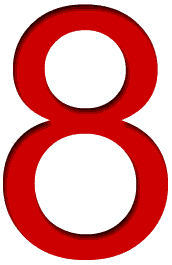 Welcome to the first Internet-only issue of Cordite. Issue #8 reflects a period of transition within Cordite. Migrating to the Web has been a difficult and confusing process, with which we have not yet fully come to grips. We now receive as many submissions via e-mail as we do through the post. The range of poetry we are sent for review purposes is diverse: CD Roms, zines, self-published works, chap-books in rich text or PDF formats. Who said poetry was dead?!
Welcome to the first Internet-only issue of Cordite. Issue #8 reflects a period of transition within Cordite. Migrating to the Web has been a difficult and confusing process, with which we have not yet fully come to grips. We now receive as many submissions via e-mail as we do through the post. The range of poetry we are sent for review purposes is diverse: CD Roms, zines, self-published works, chap-books in rich text or PDF formats. Who said poetry was dead?!
This sense of transition is to be expected. It is manifesting itself in literary communities across the globe. Magazines fold, only to reappear in web-guise; others stick steadfastly to traditional print mediums; while still others explore innovative and original means for distributing writers' work.
The Internet offers writers access to a previously inaccessible, worldwide audience. There is at present, however, a dearth of critical and inventive responses to poetry and prose written and published on the Internet. Too often, commentators recreate a binary opposition between 'credible' and 'vanity' published works, and nary anything appears (or is valid) in between. It's one thing to complain of the lack of editorial processes evident in many web publications; but to suggest that this leads to a Tower of Babel phenomenon (ie, a whole lot of nonsense) is more than a little alarmist.
The Internet has been a breath of fresh air for poetry and poets. There is more poetry available now, publicly, for free, than there ever has been before. Obviously, not all of it is good. However, as even the admittedly banal 'National Poetry Month' in the US proves, there are still people out there writing and reading poetry, many of them using new methods to reach new audiences.
Concepts such as 'e-books', 'electronic ink' and 'wireless poetry' sometimes seem about as real as the events in a Neal Stephenson novel. A recent 'text message poetry' competition organised by the Guardian, on the other hand, suggests that people are excited by the potential of innovative delivery methods, for even the most trivial things – if you can receive horoscopes on your phone, why not poems too?
Festivals are another time-honoured tradition currently undergoing change and re-evaluation. In this issue, we feature three critical responses to the notion of poetries performed in public. Martin Langford, who directed the recent Burning Lines festival in Sydney, lays down the law on professional performance; Carlie Lazar grills last year's National Young Writers Festival director, Amanda Kerley; and Michael Farrell offers us a rare glimpse behind the scenes at the Queenscliffe Festival of Words, where he shared a room with (and interviewed) Andrew Zawacki.
Big thanks go out to Bruce Williams, who selected the poems in this issue, and former editor Adrian Wiggins, who continues on as producer. In our next issue, we'll be exploring the links between poetry and music. Until then, read and enjoy!













